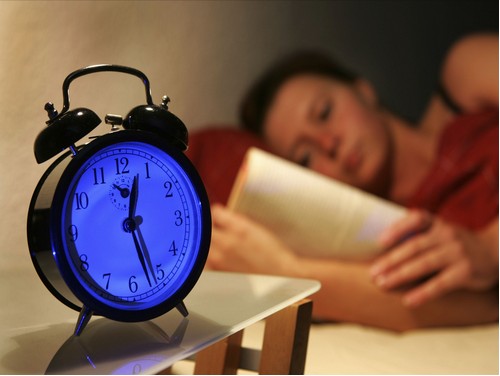Do you wonder if you are getting enough sleep, too much sleep, sleep at the wrong time of day? Often, an inconvenient sleeping pattern can just be a pain in the neck, but when you have a busy life to lead it can affect the way you work until eventually, it becomes unhealthy.
It is recommended by the National Institutes for Health that the average adult should have 7.5 to 9 hours of sleep every night. Teens (12 - 18) should have 8.5 to 10 hours.
Now you may be thinking, this is only a recommendation, perhaps I am not your average adult, and I can surely afford a couple of hours less than this per night.

You have work to be doing and if you sleep too early you feel like you are wasting time.
Well no, you may not notice it at first-a little office drowsiness at the end of the day never hurt anyone-but this can have a huge long term affect on you. Besides from causing fatigue and moodiness, lack of sleep can also affect you in many more severe ways.
· Increased stress level
· Fluctuations in weight
· Increase in catching illness (colds, flu etc)
· Increased risk of diabetes
· Increased risk of heart diseases
In fact, there are numerous lasting effects on the body and mind that can only be avoided by making up on the sleep you have lost.

Brilliant! You may be thinking that’s all well and good then, because you get plenty of sleep during the weekends.
Well again, no. Sleeping on the weekends to make up for lost time isn’t enough. Moreover, it’ll affect your biological clock and make it even more difficult for you to wake on Monday morning ready for work.
From traditional Chinese medicine science, you need sleep before 22:00 and have a nap at noon for half an hour. From 21:00, body organs such as immune systems, liver, lungs will eliminates toxicants in quiet environment or deep sleep status. For example, from 00:00 to 4:00am, backbone will hematopoiesis in deep sleep status. That is why you may feel faint when you stay awake at midnight.
So what can be done then?
Even going to bed just one hour earlier every night can slowly help bring your sleeping back up to a healthy rate. But be careful, your body cannot adjust to sudden changes in a sleeping pattern well, although it may seem fine, it’s more than likely you’ll suffer the effects the next morning. So you must slowly begin allowing yourself more time for sleep during the night and eventually you’ll be able to pay off that debt.
But there’s another problem we’re forgetting about here: Insomnia.
If you fail to sleep, lying in bed during the night fully awake will do more harm than good. If you cannot get to sleep, don’t try. Get up and wander the house, have a drink of water, perhaps warm milk or read a book until you start to feel the drowsiness kick in. Slowly but surely you will start to find that your sleeping patterns will come together.


 more
more




 print
print  email
email  Favorite
Favorite  Transtlate
Transtlate 








